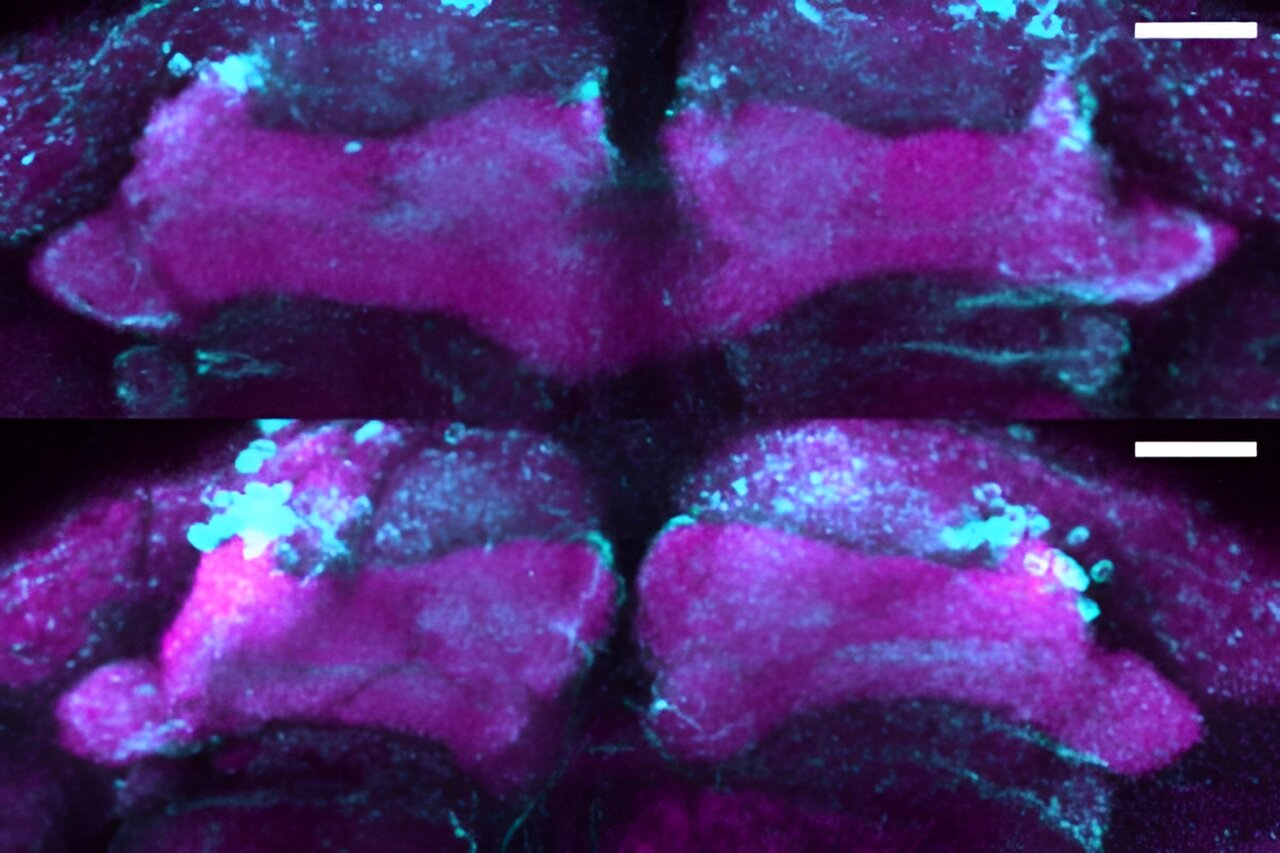
A team of scientists led by Prof. Patrik Verstreken (VIB-KU Leuven) has identified a new genetic mutation that may cause a form of early-onset Parkinsonism. The research has been published in Cell Reports Medicine.
The mutation, located in a gene called SGIP1, was discovered in an Arab family with a history of Parkinson’s symptoms that began at a young age. The study reveals that this mutation affects how brain cells communicate, providing new insights into the disease’s development and potential treatment strategies.
A genetic clue to Parkinsonism
Parkinsonism is a group of neurological disorders that share similar symptoms, including motor dysfunction and cognitive decline. It includes Parkinson’s disease but also encompasses other disorders that mimic these symptoms.
The discovery began when an Omani family, whose two daughters developed severe Parkinsonism at a young age, sought answers from their neurologist, Prof. Ramachandiran Nandhagopal and geneticist Dr. Patrick Scott at the Sultan Qaboos University Hospital.
This led to the identification of a mutation in the SGIP1 gene, a gene not previously linked to Parkinsonism. Understanding how this mutation contributes to the disease required a closer look at its impact on brain function, prompting a collaboration with Prof. Patrik Verstreken’s team at the VIB-KU Leuven Center for Brain & Disease Research, who had previously conducted successful research on the topic.
Studying the mutation’s effects
To investigate the mutation’s role, the researchers created a model using fruit flies that lacked the SGIP1 gene. These flies exhibited symptoms similar to those seen in Parkinsonism, including movement difficulties and brain cell degeneration. Closer examination revealed that the mutation caused defects in synapses, the structures that allow brain cells to communicate.
Further analysis showed that key structures in the synapses, responsible for recycling and breaking down proteins, were missing. This disruption suggests that the SGIP1 mutation interferes with the brain’s ability to maintain healthy synapses, which may play a significant role in the development of Parkinsonism.
“This work reinforces the idea that maintaining synapse health is essential for neuron survival throughout life,” says Dr. Marianna Decet, first author of the study. “Our findings highlight the importance of synaptic proteostasis—the balance and quality control of proteins in synapses—in protecting against neurological diseases like Parkinsonism.”
Looking ahead
Sabine Kuenen, research partner and co-author of the study, emphasizes the significance of the discovery. “Finding this mutation in the SGIP1 gene is exciting because it provides a fresh perspective on how these neurological disorders develop. It’s a reminder that even small changes in our genetic code can have a profound impact on brain function.”
“This is the first time we’ve seen SGIP1 involved in Parkinsonism, and it gives us a new direction for research,” says Prof. Patrik Verstreken.
“Future studies will be crucial to confirm these findings in other cases and to understand the broader implications of the SGIP1 mutation. Our hope is that by understanding how this mutation disrupts brain cell communication, we can aid the development of new strategies for diagnosing, preventing, and treating Parkinsonism in the future.”
More information:
A Novel Candidate Loss-of-function Variant in SGIP1 Causes Synaptic Dysfunction and Recessive Parkinsonism, Cell Reports Medicine (2024).
Citation:
Scientists discover mutation linked to early-onset Parkinsonism (2024, September 26)
retrieved 28 September 2024
from https://medicalxpress.com/news/2024-09-scientists-mutation-linked-early-onset.html
This document is subject to copyright. Apart from any fair dealing for the purpose of private study or research, no
part may be reproduced without the written permission. The content is provided for information purposes only.

